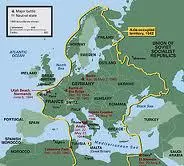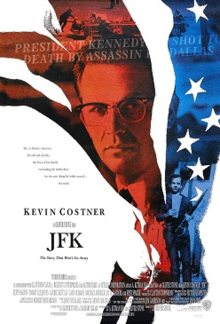(Not a review of) Inherit the Wind (1960)
This map is wrong:

That’s not to say it’s bad.
It’s very useful.
It’s informative.
It is even, when you take a step back and consider it, quite beautiful. But it’s wrong.
The continents aren’t that size relative to each other. Not even close. Of course, you could use a different projection that shows them the correct relative size, something like this:

But now all the continents’ shapes are distorted nearly to the point of being unrecognisable.
Every 2 dimensional map of the world is wrong because, obviously, the world is not flat (I swear to God if anyone starts shit in the comments…). Ultimately, any attempt to render a three dimensional sphere as a 2 dimensional rectangle is, well, a lie. It’s an attempt to simplify that will always lead to distortion one way or another.
I love historical films. I hate historical films.
This was going to be a review of Inherit the Wind.
It became something else.
Okay, here’s a bold, contrarian take for ya. People today are probably more historically literate now than ever before. Your average Westerner today knows more about world history than a professional historian would have a hundred and fifty years ago.
And some of that, sure, is better education and the internet and the ubiquity of the printed word. But a huge chunk of the credit actually needs to go to the medium of film. I mean, take even a film that is notoriously bad history like, say, Pocahontas. There is still a wealth of genuine historical data to be absorbed by watching that film. The colony was called Jamestown. The name of the tribe was the Powhatan. John Radcliffe was the governor. The story is a mixture of myth and pure Hollywood invention but you do learn truths. Of course, you don’t just learn truths.
This is something I’ve been chewing over in my mind for a long time now. Do historical movies have to be accurate?
Well, on the one hand, no. Absolutely not. Asking a historical film to be true to history is like expecting a two dimensional map to be true to a three dimensional world. Merely by making it a film you must flatten. You must distort. You must shrink. You must make the complex simple enough to understand.
Okay, but how much distortion can you accept? I mean, if every map is wrong, is there even such a thing as a bad map?
 “You gotta something to say to me, Mouse?”
“You gotta something to say to me, Mouse?”Relax, it’s a metaphor. Genre matters, of course. One of my favourite movies is Death of Stalin, a comedy based around the power struggle in the Kremlin after the death of the titular tyrant. And, like with Pocahontas, you will learn quite a bit about that period in history. But there’re also scenes like this:
Which I’m pretty confident in saying never happened.
But, that’s a comedy. The rules are different. It’s when movies start expecting to be taken seriously (a dangerous pastime, LeFou) that I think you need to take out the red pen and start marking down for inaccuracy.
Let’s start with the good. No, let’s start with the great.

Fucking hell Downfall is so good. It’s the closest thing to time travel. Every detail, every performance was sweated over. In the the pantheon of great Hitler performances (and there have been some great Hitler performances) Bruno Ganz will never be touched. It’s a movie that gives me hope for the genre as a force of good and enlightenment in the world. It makes you believe that you can actually have a flat map of a round Earth.
Maybe it’s the setting. Maybe it’s the importance of getting this particular period right (or rather the potentially disastrous results of getting it wrong) that makes them really sweat the details. Another one that I think does a phenomenal job (and, maybe even more impressively, does it with an English script):

If I ever teach a writing course, this movie will be one of the key texts. Conspiracy is a dramatisation of the minutes of the Wannasee conference, the meeting where the arch-fiends of the Nazi regime met to decide just what form the Final Solution would take (in actuality, it was the meeting where the SS gathered the other interested parties in a room and said “This is what we’ve been doing. You’re all complicit now. Cool? Cool”).
It has what is to this day, the single most terrifying line of dialogue I have ever heard, the initial results of the use of Zyklon B blandly delivered by Stanley Tucci in the tone of a middle manager announcing the quarter’s earnings:
EICHMANN: And the the results are…well I have figures.
We’re at the demarcation point. This is murder on a scale that words can no longer render, and we must instead turn to mathematics.
Then there are movies that are not rigorously accurate but are still…good enough? Maybe?
 “Game’s over Harry. Lost again.”
“Game’s over Harry. Lost again.”This scene is from the opening of Michael Collins. Michael Collins (Liam Neeson), Eamon DeValera (Alan Rickman) and Harry Boland (Aidan Quinn) stand outside the burned out wreckage of the GPO in the aftermath of the Easter Rising, waiting to be taken into custody by the British.
Now, this scene never happened. Collins and Boland escaped and were only arrested days after the Rising and DeValera wasn’t even at the GPO, instead commanding troops at a grain mill on the other side of the river. But I can forgive this because it’s good, efficient story-telling. It introduces three of our main characters. It explains the Rising and the men behind it and how its failure shaped Collins’ worldview and development as a military tactician. It lies about little things, to tell the truth about big things. And for the most part, I’m on board with it. For the most part.
Take for example, this scene:
Now, did this happen?
Yes…no. Yes?
There was a massacre of Irish civilians during a Gaelic Football game. It was called Bloody Sunday (not that one. Or that one. Or that one. Rough fucking century.)
British troops locked down the stadium, searching for Republican militants. Here, the stories diverge. The British troops claim they came under fire, the Irish civilians in the crowd claim that the soldiers opened fire without provocation (this happens a lot in Irish history. And Indian history. And African history. I wonder what the common denominator is).
Now, the movie obviously has to choose one account to dramatise and, after all, the film is called Michael Collins and not General Sir Cecil Frederick Nevil Macready.
 Of course he had a moustache. Of course he did.
Of course he had a moustache. Of course he did.So, what’s the problem?
Well, the armoured car is the problem. That never happened. It’s a spectacular image. It’s a scene everyone remembers. But it’s not real. And…it does change things, doesn’t it? You can at least imagine unprotected foot soldiers, nervy and jumpy after a wave of assassinations just that morning (and, let’s be honest, PTSD’d to fuck from their WW1 service) thinking they’ve heard a shot and panicking. It’s quite another thing to watch that big green Dalek on wheels serenely mowing down fleeing men, women and children. Only a monster could do that.
Then again, you could argue (as director Neil Jordan did) that the reality was even worse. At least in the film, people were able to run. In reality, the gates were shut when the shooting started. There was nowhere to run.
Does it matter? I don’t know.
I do think that if you know nothing of the Irish War of Independence you can watch this film and come away with a good basis for learning more. There’s a reason it’s shown in Irish history classes. It gives you the broad strokes and I think it does more good than harm to the overall understanding of the period.
 An entire generation of Irish people growing up thinking Mick was killed on Snape’s orders notwithstanding.
An entire generation of Irish people growing up thinking Mick was killed on Snape’s orders notwithstanding.I don’t think I could ever write historical fiction. I’m terrified of getting the details wrong. Hell, the entire reason I became a science fiction writer was because I didn’t trust myself with history. There’s so much power. It can do so much harm. I know this from personal experience.

This. Fucking. Movie.
This thing turned me into a weird, conspiracy-addled, paranoid little shit. Because I didn’t understand that a movie this well made, this well acted, this well-scored, this well edited (and oh my God this may be the best edited movie ever made)….just this good. Could lie to me.
I couldn’t wrap my head around the fact that so many talented people could work this hard on a lie.
This film is to conspiracism what Triumph of the Will was to Nazism.
It’s not simply bad history. It’s history in a funhouse mirror.
Behold, Lee Harvey Oswald. A hateful, wife-beating , utter failure of a human being? No! A tragic hero, framed by the Deep State to cover their own crimes. Jim Garrison, a crank and charlatan who claimed that Kennedy was killed by a gay cabal as a “homosexual thrill killing”? Well here he is being played by Kevin Costner channelling the ghost of frickin Jimmy Stewart!
 Ain’t. We. Just.
Ain’t. We. Just.And I know, I know. It’s just a movie. And even thought I want to blame this one film for…well, for everything that came after. Pizza-gate. Nine Eleven Truthers. Q-Anon. January 16th…
I know that’s just how it feels like to me, because I drank this Kool Aid.
And whatever damage this movie did, time eventually will heal it, right? The truth will out, real history will assert itself eventually?
I’m not so sure.
Alright, let’s talk about Inherit the Wind.
The first thing that people think they know about Inherit the Wind, that it’s a re-telling of the Scopes Monkey Trial, is wrong.
 How people got that idea, who can say?
How people got that idea, who can say?The movie is a fictional story that draws very, very loosely on the actual trial. But none of the real historical personages appear. Clarence Darrow does not appear in this movie. Ditto HL Mencken. Oh sure, there’s a Darrow figure, and a Mencken figure. But the names, location and actual events are so far removed from what actually happened that it might as well take place in the MCU.
And yet, I think when most people think of the Scopes Monkey Trial, they picture this:

If, when you hear the phrase “Scopes Monkey Trial” you picture a principled teacher heroically smuggling copies of The Origin of Species into his Bible Belt classroom and then put on trial in a climactic battle of science and reason pitted against medieval superstition…yeah, you fell for it.
The trial was, in actuality, a cynical publicity stunt by the town of Dayton to get some national attention. Scopes may not even have taught evolution in his class, and if he did it was from a state sanctioned text book (which, as well as a brief description on evolution also instructed students on the importance of eugenics, racial hygiene and why Caucasians are just the tops). It was all rather sordid, is what I’m saying.
But that doesn’t make a good story. People need their stories. Their myths. Their simple parables.
Probably some irony there that I just can’t see.
And so, this is history now. The Earth has been made flat.
And look, it’s certainly not the worst film in its genre. It’s obnoxious, simplistic pap but it’s not like it’s hateful or malicious.
But ultimately, I didn’t review Inherit the Wind because, frankly, this movie terrifies me. It’s the ultimate expression of the awesome power of its genre. The ability to not just distort history, or mis-teach it, but to flat-out replace it.
We have seen, we see and we will see what happens when we start to think history is just a tool for our side to beat their side. History is the foundation of the present. If it fragments, it all comes down.
Inherit the Wind takes its title from Proverbs 11:29.
A better verse for this movie, a better verse for anyone who seeks to impart history through the medium of film might be James 3:1:
Not many of you should become teachers, my brothers,
For you know that we who teach will be judged with greater strictness.
NEXT UPDATE: 30 November 2023
NEXT TIME: You know, there was a time when this seemed like the worst movie I could possibly review. How innocent I was, once.




